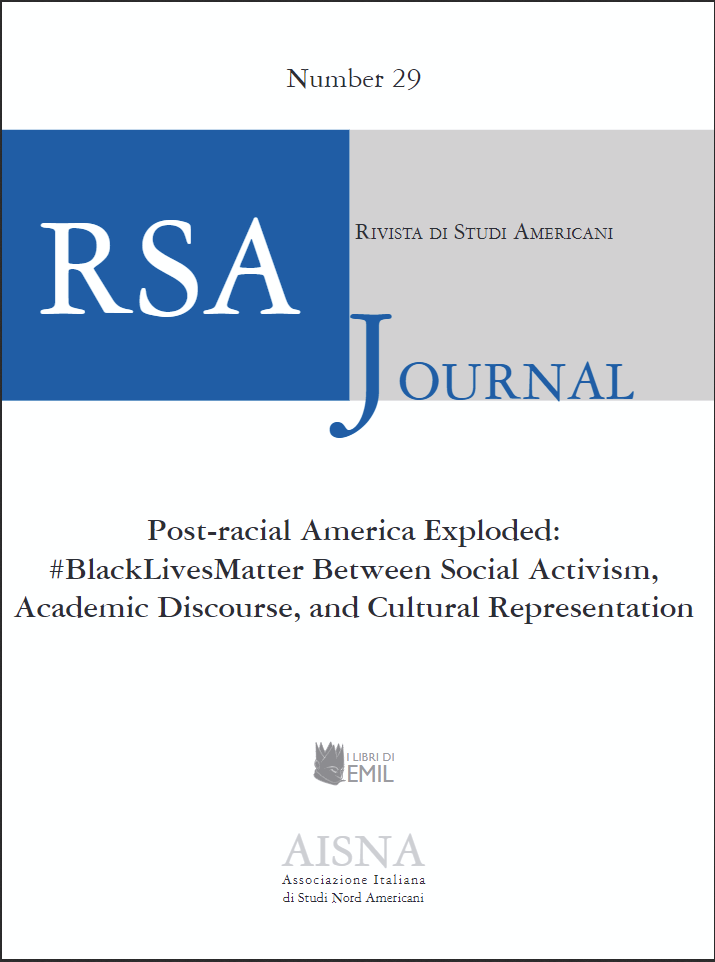Tracie Morris’s Poetic Experience
From Slam Poetry to Sound Poetry
DOI:
https://doi.org/10.13135/1592-4467/8548Keywords:
poetry, social activism, slam poetry, sound poetryAbstract
The following paper draws the main lines of Tracie Morris’s poetic production from the early 1990s, when she began her poetic carrier in the slam competitions circuit, to the dawning of the new millennium, when Morris left the poetic competition to explore a more composite way to create poetry, in order to dig the relations between music and voice, voice and text, body and voice. Referring to the first part of Morris’s poetic research, this work focuses on her two collections of poems, Intermission (1998) and Rhyme Scheme (2012) as well as on her many interviews and performances of those years. Her poems show a strong feeling of belonging to the marginalized housing project community of Brooklyn, where she spent her childhood and adolescence. And this sense of attachment and inclusion, especially to the New York African American community, opens Morris’s poetic discourse to social activism. As a matter of fact, many of her poetic works deal with topics of gender, violence, ethnicity, social class, and sexual abuse. This complex ensemble of artistic intuition, political agency,
and literary research gives to Morris’s works the contours, the colors, the rhythm and the tone of a contemporary poetic quest.
Downloads
Published
Issue
Section
License
RSAJournal will apply a CC BY 4.0 license to all its contributions starting with issue 37 (2026). Previous issues are licensed under a CC BY-NC-ND licence.





